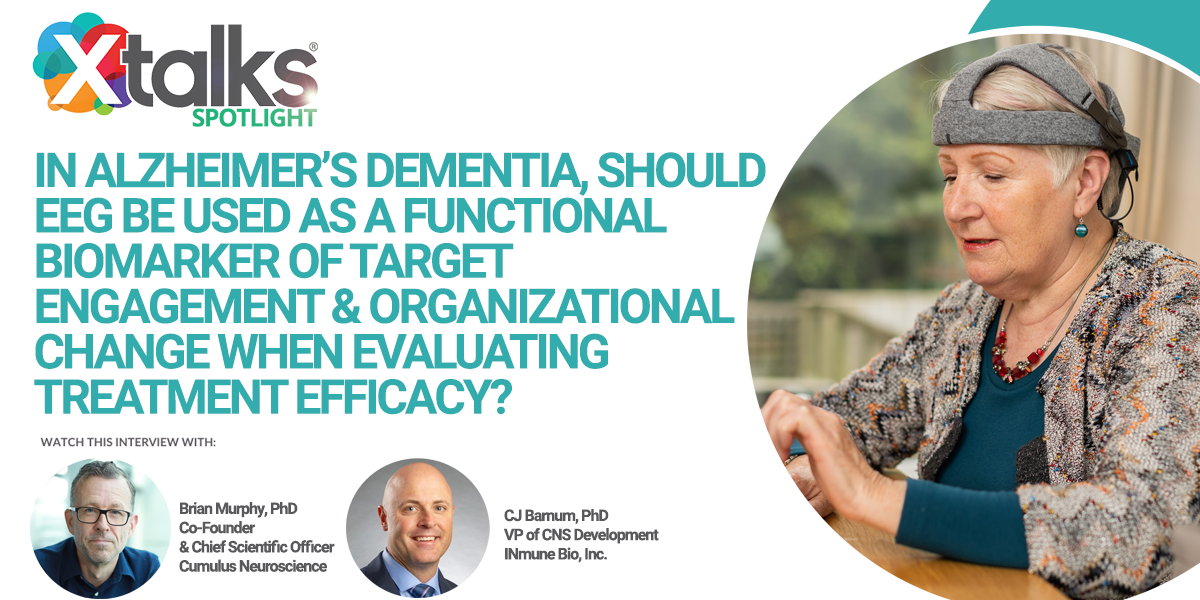COVID-19 vaccines have been a topic of conversation since the outbreak began, and last year’s US Food and Drug Administration (FDA) approval of the Pfizer/BioNTech and Moderna vaccines have given the world hope to defeat the COVID-19 pandemic.
Many countries have begun to provide their citizens with the vaccine to accelerate curbing the spread of the novel coronavirus. One country that has already vaccinated 1.8 million people out of 10 million is the United Arab Emirates (UAE). They have provided their citizens with the Chinese-made Sinopharm vaccine, which is available to all citizens and residents of the UAE.
Furthermore, they have begun rolling out the Pfizer/BioNTech vaccine to citizens in Dubai as well. Both vaccines are being provided free of charge. According to the National Emergency Crisis and Disaster Management Authority, as of January 16, the “UAE has achieved the highest rate of COVID-19 vaccine doses distribution for medically eligible groups who meet all requirements with a rate of 24.58 doses per 100 people, since the launch of the vaccine national campaign.”
 The UAE aims to have half of its population vaccinated by the end of March. They have also initiated campaigns to speed up the daily vaccine rates because the positive cases in the population have tripled in less than three weeks due to the increase of tourism during the winter months. The cases are now averaging to more than 3,000 per day compared to the 1,000 per day at the end of December.
The UAE aims to have half of its population vaccinated by the end of March. They have also initiated campaigns to speed up the daily vaccine rates because the positive cases in the population have tripled in less than three weeks due to the increase of tourism during the winter months. The cases are now averaging to more than 3,000 per day compared to the 1,000 per day at the end of December.
Although the vaccine in the UAE is optional, citizens are advised and encouraged by governmental authorities to take part, if they can do so. Also, the priority system in Dubai differs compared to other countries. The Sinopharm vaccine is available to any citizen or resident living in the UAE; the Pfizer/BioNTech vaccine is only available to people who are most at risk of infection or people at risk of serious complications from the infection. The Dubai Health Authority is targeting senior citizens and residents of all nationalities over 60 years of age, including those who have a chronic disease, people with disabilities and frontline workers.
Combating COVID-19 Vaccine Misinformation
Despite the success they’ve seen in getting nearly 20 percent of their population vaccinated so far, many in the UAE are afraid to get the vaccine due to the spread of misinformation on platforms such as WhatsApp. The Arab world citizens are active users of the instant messaging application, and a lot of the information spread between communities is via videos, photos and links that lead to misconceptions about the vaccines’ safety. The community uses WhatsApp as their source of news which has ultimately created fear within the population and the spread of fake news.
Xtalks spoke with Dr. Derar H. Bal’awi, a senior clinical lecturer at The University of Petra, Jordan, and consultant pharmacotherapist of infectious diseases, about the public’s opinion of COVID-19 vaccines.
“The issue of conspiracy theories and anti-vaccination groups have always been around every vaccine released against an epidemic or pandemic; these, along with false social media messages about vaccines, have negatively impacted the public’s perception about the safety and efficacy of vaccines,” says Dr. Bal’awi.
“The new vaccine technology (mRNA) has been in research since 2005, but in trials on cancer cells. However, during the pandemic, the research has been shifted to using this platform to manufacture the COVID-19 vaccine. The vaccines have moved through all preclinical and clinical phases.”
Addressing fears that the COVID-19 vaccine development process was rushed, Dr. Bal’awi explains that it only took around eight months since phases were running in parallel rather than consecutively. The presence of generous funding from governments also helped to speed development.
 “The safety and efficacy results were very satisfactory. In medical science, safety means that benefits outweigh risks; therefore, Pfizer and Sinopharm vaccines are safe and effective based on the evidence [in] our hands,” he adds.
“The safety and efficacy results were very satisfactory. In medical science, safety means that benefits outweigh risks; therefore, Pfizer and Sinopharm vaccines are safe and effective based on the evidence [in] our hands,” he adds.
“The UAE has stepped up being the first Arab country to efficiently assess and study Sinopharm vaccine files. Thus, the UAE was the first to approve and give the vaccine to their community to control the contagion curve and try hard to return to their normal life,” he continues.
This was in collaboration with Abu Dhabi-based Group 42 (G4), an artificial intelligence and cloud computing company.
Xtalks also spoke with Dr. Mazin Alsaidi, the chief medical officer of the Saudi German Hospital in Dubai, and he says that “a huge amount of misinformation surrounded this pandemic. Most of it has no scientific foundation that caused confusion to the public and resulted in mistrusting the global health systems. I believe eventually science will prevail and this pandemic will face the fate faced by previous pandemics.”
Like Dr. Bal’awi, he also addresses the fear that many have regarding the speed at which this vaccine has been approved and administered across the globe. “The new COVID-19 vaccines are believed to have been rushed, but the fact is that these vaccines had been produced after eliminating major bureaucratic procedures that usually are implemented during vaccines manufacturing. These vaccine productions had gone through the regular steps starting with three clinical trials, publishing the trial results then manufacturing the vaccine. The safety of the vaccines is continuously monitored.”
Herd Immunity and Equitable Access to COVID-19 Vaccines
The UAE hopes to achieve herd immunity by having most of its population vaccinated. However, the World Health Organization (WHO) stated that they are still learning about immunity to COVID-19. They said that when most people are infected with COVID-19, they develop an immune response within the first few weeks, but we are unsure of how strong or lasting that immune response is as well as how it differs from one person to another. Therefore, the WHO believes that until we better understand COVID-19 immunity, it will not be possible to know how much of the population is immune, and how long that immunity will last, to make future predictions.
“Herd immunity, though not lifelong for the SARS-CoV-2 virus, is not expected to be achieved in 2021 primarily due to challenges in the production and logistics of vaccines, let alone the chance of the current mutations of the virus, which may affect the efficacy of the vaccine,” says Dr. Bal’awi. He goes on to say that currently, there is a slim chance for this hypothesis as mutations are minor.
“My advice to governments and individuals: we are not in a race. We don’t need a small number of winners and a big number of losers. We are all in the same boat. Rich countries should support poor countries to receive the vaccine, so we are all protected. To people: Do not lend your ears to rumors and unprofessional, unscientific people who deceive others on social media,” he continues.
Dr. Rasha Adnan, a GP family practitioner at Al Moosa Medical Centre, believes that the UAE played a leading role for the rest of the world in combating the pandemic. Some examples include that “it was one of the first countries that enforced the rule of putting a mask on, along with the social distancing act in public spaces, the lockdown, working from home and staying home. They opened field hospitals, as well as provided screening tests that were done on a large population regularly,” she says.
“The private sector, together with the government sector, worked hand in hand and gave effective and efficient services to combat this pandemic. I’m proud and thankful to be living here [in the UAE] and to get such outstanding services for me and my family, personally speaking,” she adds.
She also says that the UAE is playing a leading role as a pioneer in making the vaccine available to the public. “We are lucky to have the options of having two kinds of vaccines available to us, which have proven to be safe and effective. Personally speaking, I advise and encourage all my patients to take the vaccine. We have the options of getting the Chinese Sinopharm vaccine and the Pfizer vaccine. The government has set up an application online to book a time slot and it is very organized and systematic.”
UAE vs. North American COVID-19 Vaccination Programs
The UAE, in comparison to North America, shows a great deal of difference in the rollout of the COVID-19 vaccine. It may seem as though the distribution of the vaccine in the US and Canada is taking quite a while, but there is a limited supply for such a large population. They are hoping to acquire more vaccines in the coming weeks and months. The goal is to allow anyone who would like to take the vaccine to have the opportunity to receive it, but quantities are not large enough yet, therefore a priority system and plan has been set in place.
 While Canada has secured more doses per capita compared to any other country, the challenge has been distributing the vaccines across a widely spaced population. And since some of the pre-orders are for vaccines that have yet to be approved, it could be nearly a year before other options are available.
While Canada has secured more doses per capita compared to any other country, the challenge has been distributing the vaccines across a widely spaced population. And since some of the pre-orders are for vaccines that have yet to be approved, it could be nearly a year before other options are available.
In Canada, the current individuals receiving the vaccine are part of the first phase rollout, which is for priority groups. This group includes residents and staff of long-term care homes, adults 70 years and older, healthcare workers, and adults in Indigenous communities. The Canadian population is 37.74 million people and 2.48 percent of the population have been vaccinated so far.
The second phase will include healthcare workers that were not part of the initial rollout, residents and staff of all congregate settings and essential workers. In Ontario, where cases of COVID-19 have been skyrocketing since the second wave began in September, it is believed that the rest of the general public will be getting vaccinated later in July.
Like the US, Canada has approved the Pfizer and Moderna vaccines and the country is following recommendations put forward by the federal government’s National Advisory Committee on Immunization. The recommendations were made by experts in pediatrics, infectious diseases, immunology, pharmacy, nursing, epidemiology, pharmacoeconomics, social science and public health.
Viewpoints from UAE Residents Who Were Given the COVID-19 Vaccine
To understand the public’s decision-making process around getting vaccinated against COVID-19, Xtalks spoke with those living in the UAE.
Maha Khalil, a pharmacist, says, “As a pharmacist, I know for a fact that the only way to end this pandemic is by vaccinating more the 70 percent of the population. In order to encourage people, there is only one way to do so which is leading by example. Before my first dose of the vaccine, I attended online meetings with doctors and specialists about the different types of vaccines available, understood their data, how safe and effective they are and a lot more. This knowledge encouraged me to take the vaccine without having any doubts or fears in mind.”
Rula Shahin, the executive assistant at the American University of Sharjah, says, “I took the first dose the vaccine, and I decided to take it because I have elderly parents and I wanted to have access to them if they needed me. I did not want anything in the future, such as regulations, to stop me from being able to reach my daughters who reside in another country if I needed to. I was not 100 percent convinced, but I decided to stay on the side of caution with this. My main concerns have been related to all the political issues that have surrounded COVID and its vaccine that have made me hesitant about trusting the people who are marketing this, but I decided to take it at the end and hope for the best.”
Leanne Farah, an architect at Woods Bagot, says, “When the vaccine was readily available for residents, I was skeptical and afraid for weeks, although it was something I was eagerly awaiting since the beginning of the pandemic. Knowing that taking the vaccine is the easiest and fastest way to bring ‘normalcy’ back to the country, my family and I went for it. I think the fear of it comes from my generation actually being alive at a time of its manufacturing and trials. Of course, I was afraid, but every effect has a side effect; whether I took the vaccine or not, I would have still been affected one way or another. I just completed my second dose this morning, and although still not a risk-free choice, choosing this path made me feel safe knowing I did something for myself as well as those around me and did my part in going back to that normal’ life we once had before.”
Karim Elassi, a student at Reading University, says, “The UAE government has a vaccination program that allows nationals and residents to get vaccinated for free and in almost no time. I found myself to be lucky that I qualified for the vaccine. I took comfort in the fact there are millions that have taken the vaccine besides myself. Looking at how some countries are struggling to keep supplies, I’m glad I decided to take the vaccine early on.”
In conclusion, Dr. Adnan has a strong message for anyone considering getting vaccinated: “Everybody that can receive the vaccine, please take it and stay safe. Keep social distancing, avoid crowded places, maintain keeping the mask on and practice good hand hygiene. And once we take the vaccine, we’ll be able to go back to our normal life and combat this pandemic. Why put people at risk when you can just take the vaccine and protect yourself others around you?”












Join or login to leave a comment
JOIN LOGIN